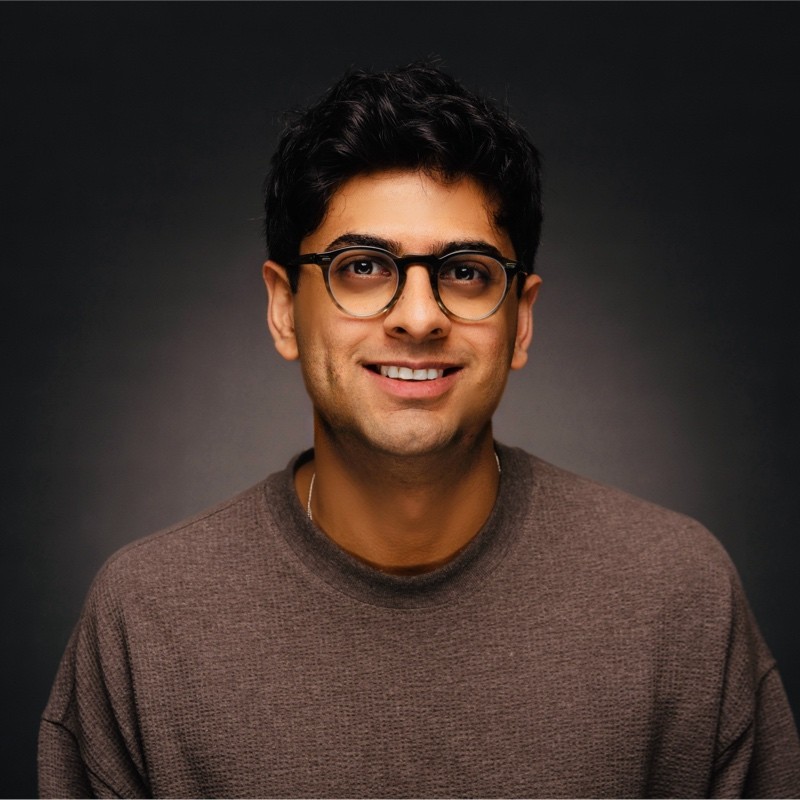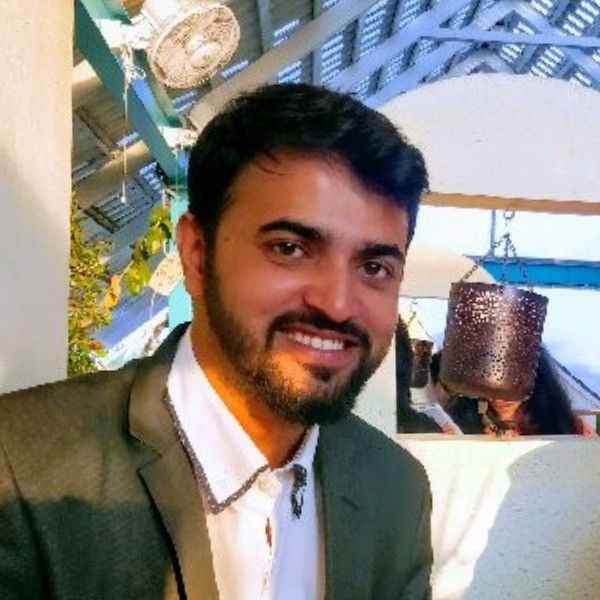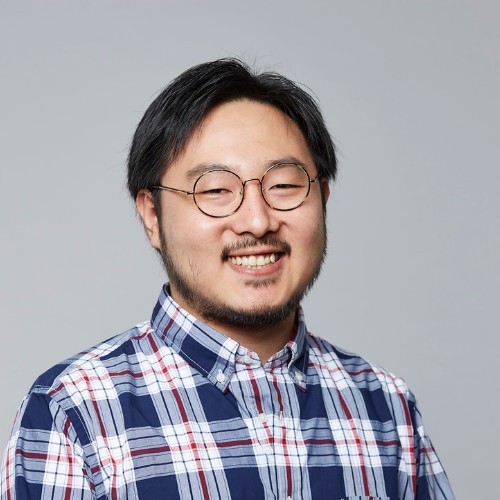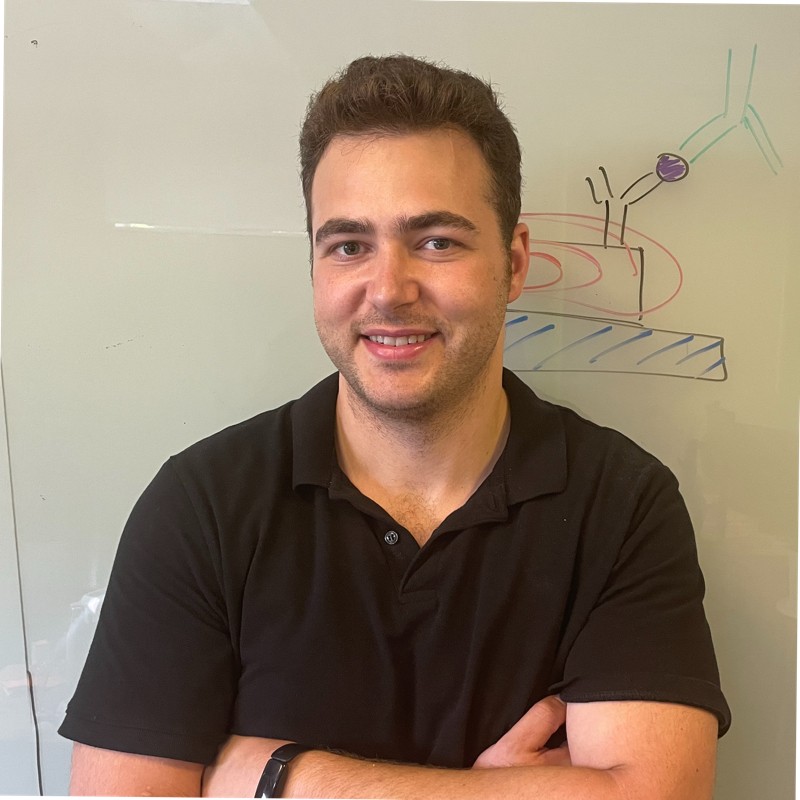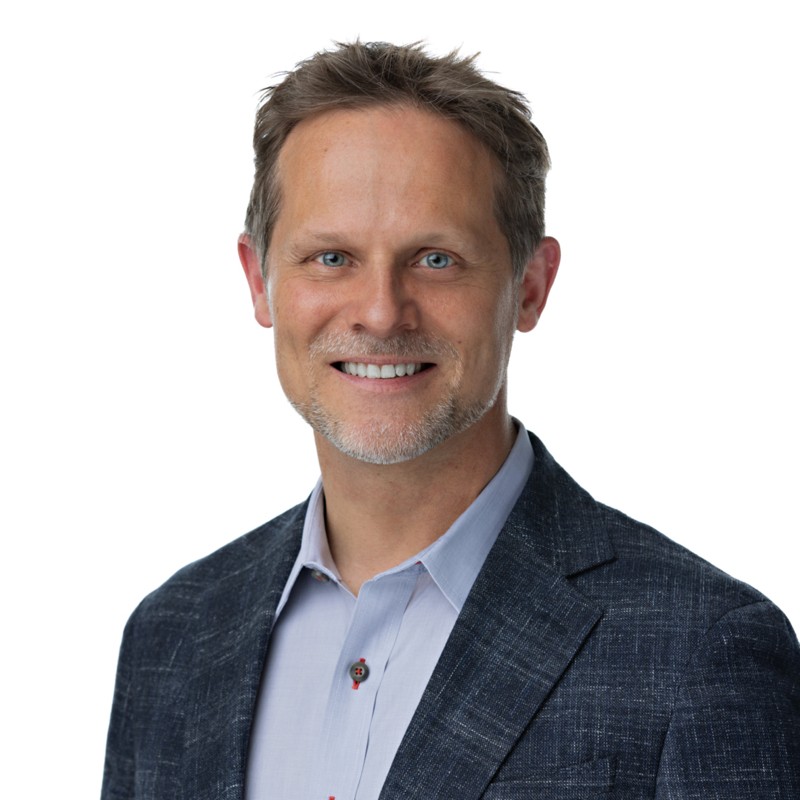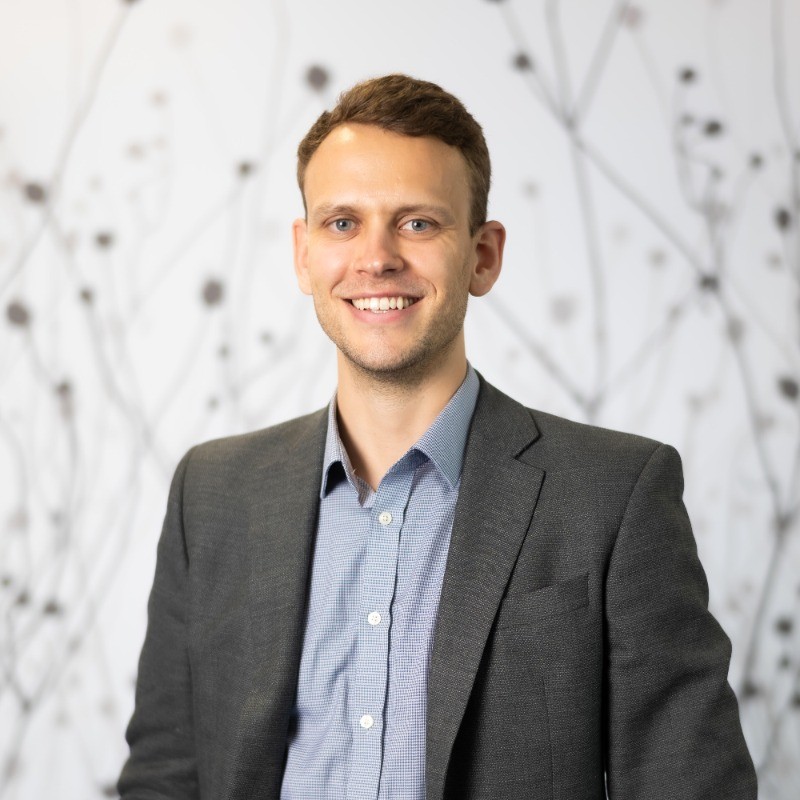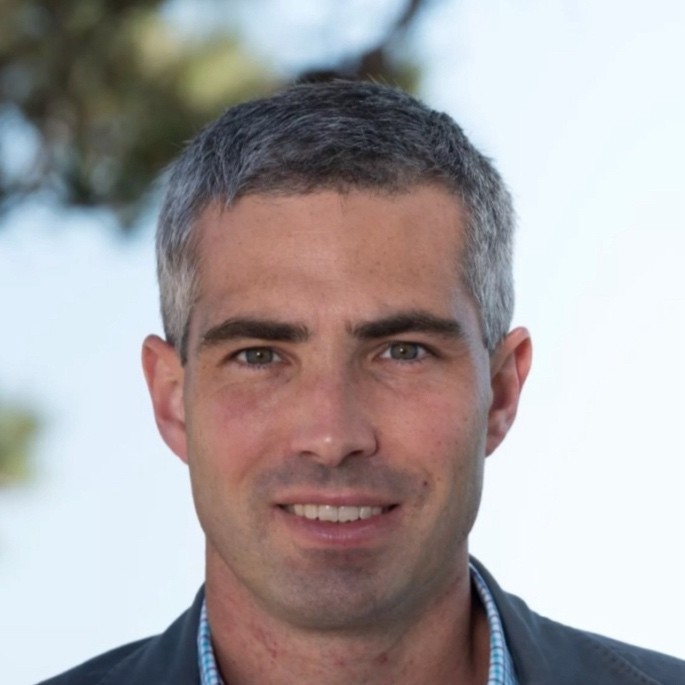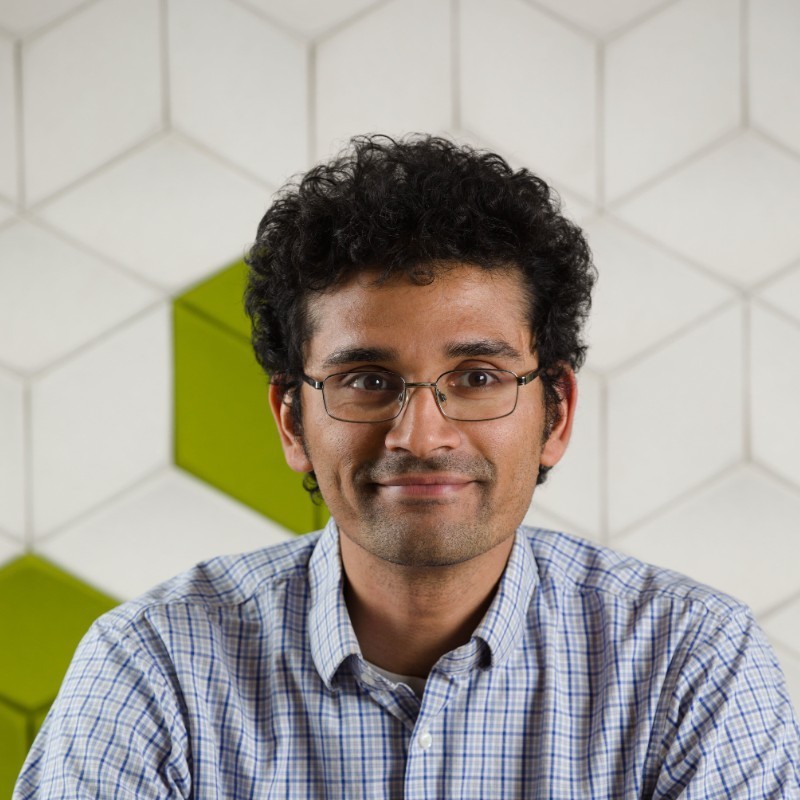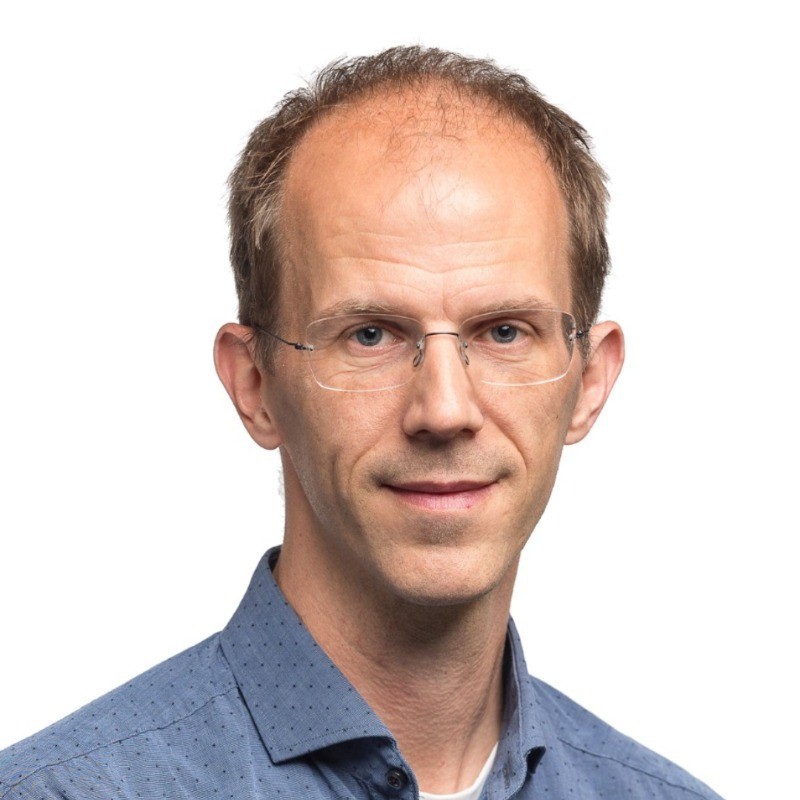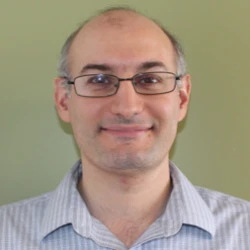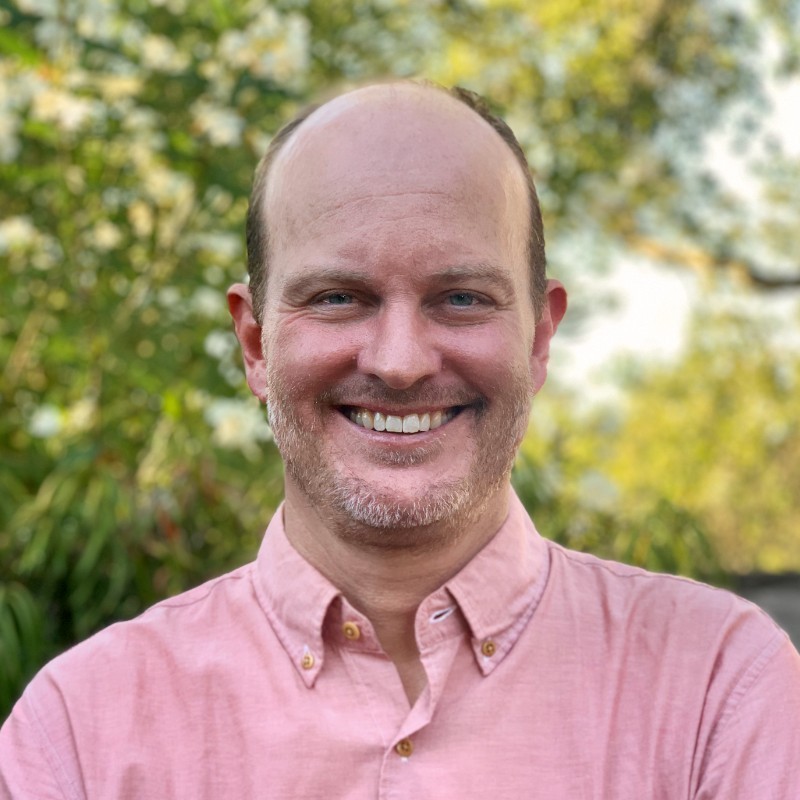How to start a deep tech company from scratch
What are some ways to approach the deep tech space?
“I think going back to it, it comes down to reading these papers, figuring out what can be productionized, how to write production-level code, but also having some sort of business sense of how to take it to the market. That's just how a lot of these deep tech companies are born. Can you ingest those papers, understand how to read them, and try to build something off it?”
How would you advise a software engineering student in India to self-study AI?
That's a really good question. It's a tricky question. I can talk about my journey, and it's similar to yours. Step one is to find a niche that you're really interested in. For me, it was neuroscience, and I started reading everything about neuroscience, especially neuroscience and AI. I was super into it, so I was reading all the general stuff that was out there because these are easier to understand. YC has a lot of internal things that we're putting out. Google has a lot of cool internal white papers on neuroscience. I started writing some of my own on neuroscience as well.”
How do you manage reading and understanding complex academic papers?
“It takes a long time to read. Even if you read 20 papers, you would still feel like it's never easy. So you want to go section by section. You want to tackle the section, fully understand it, and if you read it a few times, you kind of get it. Now, with OpenAI, I often just copy-paste a paragraph and open it up to give me a summary with ChatGPT and then go into the depths of it. I really leverage ChatGPT to understand what's going on, and then go section by section.
Did you need to learn foundational biology for your neuroscience work?
“Yes, I did. I spent about three to four months on it. I knew I wanted to work with brain waves. I found brain waves fascinating for a long time. My co-founder had been writing papers on this for 10 years, so he knew everything about it. I knew what my niche was; it wasn't the brain in general, but brain applications using EEG. I learned everything about it that I possibly could. I bought a few books on it, advised by our advisors, some of the top epileptologists. You start with easy 'for dummies' kind of books and then build up from there.”
How did you become interested in using EEG for brain applications?
“At the Google Moonshot Factory for Google X, where they work on weird things, there was a cool project that spun out into a company called Next Sense. They were building earphones where you can listen to music but also track EEG of your brain via the earphones. I was talking to some engineers, and the applications can be crazy to the point where right now neuroscience is one of the few fields that is subjective. For mental health or ADHD, you fill out a form, they track your eye movement, but it's all subjective, on the doctor's discretion.”
How did you come across your co-founder Dimitri?
“I met my co-founder Dimitri through mutual friends. He did his PhD in hospitals, and I was looking for someone specific in neuroscience. He was basically like, 'I know everything about this problem.' He'd been working on EEG for many years.”
What was your process for reading papers and determining their value?
“The way I would always go about it is leveraging ChatGPT. I put a bunch of stuff in there, read the summaries, and decide whether it is worth it or not. ChatGPT helped me with a bunch of things, like understanding the factor rating, how much it has been quoted, and if it is high value. That helped me determine the right papers to read.”
How did you gauge the commercial potential of EEG models?
“It was really about having an understanding of how language foundation models work and thinking, 'Why can't this be applied to this thing?' Papers kept coming out back-to-back, so it was a positive signal. They were all slightly improving on each other, and the missing link was that it was in the lab, so they didn't have enough money to burn on compute.”
What was your approach to researching the latest developments in neuroscience and AI?
“It depends. A lot of times, I became a part of neuroscience groups and AI communities, and I would just read what was circulating in them. There are Slack channels where we discuss new and interesting papers and developments.”
How did you stay updated with the latest papers and trends?
“There’s a group called Braingels, a prominent angel investing group with a lot of neuroscience people who have built and sold companies. The founders of Control Labs and Inflection AI are in it. These guys scout for the next big startup, and they share interesting developments that could be commercialized.”
How did you know which academic papers to focus on?
“The highly cited review articles from prominent neuroscience labs or academic papers are the ones to focus on. The internet algorithms help too. Once it finds out you're in the neuroscience community, you see the latest papers on LinkedIn and other platforms.”
How did you determine the funding needed for EEG model development?
“We looked at the basic outcomes and the open-source data being used, which depended on around $100,000 in compute. We discussed this with my co-founder, who is an AI scientist, confirmed our thoughts, and estimated that if $100,000 got to a certain point, raising $5-6 million could take it much further.
More from Kris on Building deep tech products: shift from quick wins to long-term value
How did you get started in bioinformatics?
"Bioinformatics is kind of a multidisciplinary field. When I was doing my master's in Biotechnology at Amity University, they had a bioinformatics course. The reason I got interested in this field was because of the way it merges biology with computer science and mathematics. I've always been someone who likes to work on cutting-edge technologies, so I thought this is something which can be useful in the future. I then explored it more during my PhD at IIT Delhi."
What was your PhD research focused on?
"My PhD was mainly focused on understanding how different gene regulatory networks work in the human brain. We were trying to understand how different genes are regulated during conditions like stress, Alzheimer's, and Parkinson's, among other neurological conditions. The main aim was to identify key regulatory genes which can then be targeted for therapeutic purposes."
Can you tell us about your current role at OmicsLogic?
"Currently, I am working as a lead bioinformatics scientist at OmicsLogic. My role here is to design and develop different bioinformatics pipelines which can be used by researchers around the world to analyze their omics data. The main aim is to make these pipelines user-friendly so that even people without a background in bioinformatics can use them and get meaningful insights from their data."
How do you keep up with the latest developments in bioinformatics?
"Bioinformatics is a rapidly evolving field. To keep up with the latest developments, I regularly read research papers and attend conferences and workshops. I also follow a lot of bioinformatics forums and communities online where people discuss the latest tools and techniques being developed. It's really important to keep learning and updating your skills in this field because new tools and techniques are being developed all the time."
What advice would you give to someone starting in bioinformatics?
"The most important thing is to have a strong foundation in both biology and computer science. You need to understand the biological problems you are trying to solve and also have the technical skills to analyze the data. Don't be afraid to experiment and try out new tools and techniques. Bioinformatics is a field where you can really push the boundaries and come up with innovative solutions to complex problems."
How do you approach developing bioinformatics pipelines?
"The first step is to understand the biological question we are trying to answer. Once we have a clear understanding of the question, we can design the pipeline to analyze the data. The main aim is to make the pipeline as user-friendly as possible so that even people without a background in bioinformatics can use it. We use a lot of visualization tools and user interfaces to make the data analysis process easier and more intuitive."
What will be a significant potential topic in bioinformatics?
"Explore opportunities in personalized medicine and healthcare, as this field is vast and rapidly growing. Innovate by addressing specific patient needs and developing solutions tailored to individual healthcare challenges."
Can you share your journey on how you started Pow.bio?
"Yeah definitely. I'm more than happy to share about my personal experience, kind of how we started this startup journey. It is kind of an N equal to 1 experience. It's like they were not like I'm not an investor right? So I can only talk about our kind of a biased perspective. I don't know if you know Chong from Skedec. He's kind of like one of the investors here. I think he's based in China but he's Taiwanese. So he is one of the one of our early investors. So I definitely think he's deeply embedded in the UC Berkeley deep tech ecosystem. And then maybe he has like a better perspective. Tom Tom is his name I think. Personally I think we started this. I think I started this company I think I was the very first person really because I was really lost in life. I think this is very common for every PhD student. We're basically starting since like six years old since we're in school until like 30 years old and I'm about to get out of school. It was a very long journey and the goal was very linear right? It's like okay just do research you know learn knowledge. Solving problems that was fine but at the end of the tunnel is basically you know this is a PhD like we're kind of at the end what I'm gonna do you know. Professorship is difficult to acquire at the time and I didn't really want to do a postdoc because the pay is really bad. I also didn't really want to get an industry position. I just felt like it's not super exciting. The life feels pretty dull if I just go working in industry. I just don't see myself having a nine to five kind of a job. It really doesn't matter how much the salary is. It's just very difficult for me to see myself having a predictable life working under a big corporation. Because of that I had basically I was going through a life crisis like what am I going to do with my life this is so crazy there's no clear next stage. And then I spoke with my professor at the time and he was like oh you should you know it's common everybody go to this space especially as a PhD student you really like. Everybody joining a PhD program wants to change the world and in the end of the day it's like oh I guess haha we did some research published a couple of papers that's the end. He basically was like oh you know let's do this. You should your research is very applied and maybe you should consider doing a startup. And then I think I might be the first. I think there's another person from my year but before my year we didn't have any person start a company. In our department you either go to just find the industry position or do a postdoc and find the professorship elsewhere. So he basically was like you should try to start a company and see what happens. And then he introduced me to a lot of resources here at UC Berkeley. The ecosystem is very established here. I believe UC Berkeley is the number one. If you just look at founders kind of like a pump out the most founders every year. So the ecosystem is very established around here. We have Skedec which is like the UC Berkeley accelerator. UC Berkeley has Berkeley Catalyst. It has some sort of like a National Science Foundation-based programs that basically the NSF found the market researchers because they know us. All the scientists have a lot of great ideas and great technologies but whether the technology can be turned into a product that's a different thing."
How did you decide to work on continuous fermentation?
"We started off. When we raised our pre-seed round that was the case. My PhD topic was on contamination control. Long story. My PhD topic was on perchlorate respiration which is an environmental science topic. And then as part of that research we also discovered a contamination control technology that never made it into a scientific publication for a lot of random reasons. We basically convert that to a patent and then that patent became our core technology. And then we use that to raise money. So it was I would say directly related to my PhD work."
What were the factors that informed that pivot to continuous fermentation?
"It was mostly due to that experience from the National Science Foundation but it wasn't a short experience. It wasn't like we took a day and then it's done. It was like I forgot it was one month over three months of experience. We had to go talk to a hundred different potential clients and then kind of gather their feedback. It started as like is contamination a problem? They're like nah not really. And then kind of like what is the problem? What is the biggest pain? And they're like oh you know if we can product an economy or like speed to data speed to revenue you know things like that. And then that kind of informed that kind of led us to the path of continuous fermentation. Initially it was really just contamination control stuff like that. And then that program also paired us with because it happens all the time like especially I think in the U.S. in academia a lot of professors work on very metaphysical problems that are too fundamental and very difficult to translate. Because of that NSF saw a lot of that and knew that technology does not equal to product."
How did you set up the conversations with industry folks to interview them about the problems they have?
" I was cold calling people. It was a pretty aggressive outreach. People yelled at me. They were like who are you? Why are you calling me? I don't want to talk to you. You know that definitely happened. So it was just cold email. Cold email connection obviously. We have friends, friends know friends, and then at the end of every interview we'll also ask people could you introduce us to three other people that you know? It's kind of this not pansy scheme but kind of a similar idea. And I was a student so it was easier at the time. It was basically hey I'm a student doing market research which is the truth at the time. And then I had a berkeley.edu email that also opened many doors."
Can you share milestones needed to raise various rounds?
"I think every investor looks for different things. Some people really like market size. Deep tech investors a lot of them have this thinking of they prefer to catch the horse that's running versus the horse and the jockey analogy. The product market fit and traction is more important to them. For us it was more about the technology I would say. The technology is quite unique. We have a lot of people interested in the technology side of things. We also have some investors who are more interested in the vision of continuous fermentation. To answer that question I think it's a little bit different from case to case. I have to say for pre-seed round it was kind of like having a very promising vision that excites people and that's good enough. And then the second thing is get as much feedback from investors as possible and then start refining the pitch and the deck and also the message. Those are the things we did to get the first funding."
What advice would you give to someone looking to start a company in a deep tech space with zero experience?
"I would say first thing is know yourself and then know what excites you. It's going to be a very long journey. I don't think a lot of people can finish it. It's like 90% of startups fail. So I would say the most important thing is know what excites you and make sure that's aligned with your goal and then make sure you have enough runway to pursue that. The second thing is be very scrappy. Get a lot of feedback and then keep refining. The third thing is talk to as many people as possible. I think the term people use here is mosquito bite, dog bite, and the shark bite. We usually only focus on the shark bite problem and then also get the sense of what are nice to have. Nice to have means people will never, ever pay for that. Like a nice to have is like we don't want to solve anything that is like fix anything that is nice to have because nobody paid for nice to have. And then get a good team. I think that's also a very important thing."
Can you tell us about your journey and how you got into lab-on-a-chip technology and blood testing?
I studied chemistry in my undergrad, so it wasn't that far off from blood testing in that sense. It's a good base for that type of thing and also for materials. I tried grad school but didn't find self-study very effective. The best way to learn is one-on-one tutoring or apprenticeships, as they provide direct feedback. I spent time in grad school and research at universities like Technion and MIT. A lot of grad school value is in the people around you and the structure. You can't get to the edge of a field by just reading textbooks; it's a combination of resources.
How did you teach yourself the science behind photonics and lab-on-a-chip technology?
One-on-one tutoring or apprenticeships are the most effective ways of learning. If you misunderstand something, the person can directly correct you. Textbooks don't provide feedback loops, and some information is just inside people. There are incredible resources online now, like MIT lectures. I didn't finish a PhD, but for an entrepreneur, it's difficult to fit in a full PhD while working on a startup.
What led you to choose silicon photonics and lab-on-a-chip technology?
After my first startup was acquired, I left and spent time studying and living on the beach. In 2017, during the Bitcoin peak, I learned about mining and cryptography, which led me to optical computing. I was searching for a way to prototype an optical computer and got interested in silicon photonics. Someone recommended it to me, I read papers, and found it very exciting. I took classes, read textbooks, and eventually learned to design chips.
How did you go about learning silicon photonics?
I did multiple things: emailed people, purchased textbooks, took a class on edX from the University of British Columbia, and designed a chip as a project. The class was very helpful in getting the fundamentals. Time and patience are also important; spending a couple of years in a field, attending conferences, and absorbing information helps you learn.
What was your process for learning about Bitcoin and optical computing?
I read the Bitcoin white paper and watched YouTube videos about mining. I realized Bitcoin could use a lot of energy and thought about solving that with optical computing. I read a thesis on optical cryptography from MIT, which gave me the idea. It evolved from there as I learned more about the potential of optical computing for cryptography. It took time. I was interested in Bitcoin and wanted to learn something technical. I chose the most technical aspect related to Bitcoin, which led me to optical computing. Through discussions and recommendations, I found out about silicon photonics, took classes, and learned more. It was a gradual process of following interesting topics and learning along the way.
How did you manage to find and connect with experts in the field?
Working for free can be very valuable. If you're willing to work without expecting money or credit, you can work almost anywhere. This separates you from others who seek rewards. I was able to do this because I had some savings from my first startup. It opens up opportunities to learn from the best people in the field.
What advice do you have for someone trying to learn about a new field?
If there is a class available, it can be very helpful. Having the fundamentals makes it easier to learn from individuals. Time, patience, and actively seeking out knowledge from various sources, like conferences and online resources, are key. Combining this with the ability to work for free or low pay can open many doors and provide valuable learning experiences.
What is your motivation to go into the biotech & pharma industry and start Hemab?
My passion for medical innovation started while I was a medical student. The studies were certainly exciting, however the really fire and passion came when I started getting involved in research and development. That sparked a curiosity and dedication to discover and bring new treatment options to people suffering for high unmet need medical conditions. Already as a medical student I invented new ways to diagnose and treatment people living with blood clotting disorders. Those discoveries lead to a combined track of MD and PhD. It further triggered early international exposure to a vast network of experts – many of whom became mentors and certainly inspiration for learning more and aiming higher. During the thousands of hours spend researching for new ways to diagnose and treat blood clotting disorders started a dream of one day building a biotech company aimed to bring innovation to all those people without good treatment. The ultimate motivation were people – people living difficult lives because they don’t have treatment to live a full spontaneous life and people being passionate and dedicated to bring such new treatment options to life. Following many years of experience eventually the time was right to start Hemab and live the dream that started early in my professional career. 100% focused on people, science, passion, perseverance and lots of conviction we will be successful.
How did you learn about the biotech & pharma industry to become an expert in it?
The journey towards biotech has been about 15 years in the making. The idea / interest in biotech started as a medical student. However, as I researched more and listened senior experts who had been successful it became clear that there are lots to see, try, learn to set yourself up for success. My exposure to biotech/pharma started when I was practice clinical/scientific medicine. After several years I eventually joined a pharma company (Baxter Healthcare) with the main purpose to learn as much as absolutely possible and see/listen and talk to as many experts as possible. From a large pharma like Baxter I joined an up and coming biotech called Alnylam pharmaceuticals where I was employee number 115. The Alnylam experience was transformational – here I got to work with world class leaders who gladly shared their knowledge and expertise – here I got to experience what it means to build a biotech company through ups and downs. Standing on the shoulders of giants I eventually become more and more confident and knowledgeable that I could start, build and lead my own biotech company one day.
What would have done differently if you would start Hemab again with zero experience and knowledge about the biotech & pharma industry?
I do not recommend anyone starting biotech with zero experience and knowledge! (… and honestly today, there are no investors who will finance someone with zero knowledge and experience). Drug development is probably the hardest business you can imagine with sooooooo many difficulties and challenges along the way. It is probably no more than 1-2 out of 10 drug development projects that eventually succeed – and that’s with journey and challenges being lead by highly experienced and skilled leaders. Even to the most enthusiastic and passionate biotech entrepreneur I highly recommend go do some apprenticeship, get some hands on experience, see/listen/talk to lots of people who have been there / done that before and thereby get prepared for the journey. Building biotech and developing drugs is the toughest business ride you can imagine. However, when (often if) you succeed it can also be the biggest gratitude you can imagine – helping people get new treatment to live a fuller life with less worry and burden
What is your motivation to go into Biotech & Greentech industry and start Puraffinity?
It dates way back - I wanted to find a way to pay back to the people who offered me kindness of my long 'coming of age' cycling trip from China to Denmark. I enjoyed meeting so many friendly people who helped me with water and a place to sleep even when they didn't have much themselves. As I reflected during the cycling trip, I found that a career in the greentech industry would be a way to benefit disadvantaged communities in industrial areas who otherwise get overlooked by the benefits of tech advancing. Later when I got introduced to synthetic biology by amazing people like my cofounder Gabi Santosa, I got really engrossed in the exponential capability of science at large to address emerging issues. I dug deep with a bachelor project under the tutelage of Prof Tom Ellis and Ben Reeve, which gave me a big appetite for learning more and finding a way to become a part of the ecosystem.
How did you learn about Biotech & Greentech industry to become an expert in it?
I took part in the big biohacking competition called iGEM! It was incredible to get a blank canvas to do our own research despite being a group of undergrads and I loved the chance to address genuine challenges rather than a pre-set research question.
What would have done differently if you would start Puraffinity again with zero experience and knowledge about Biotech & Greentech?
I would have done it sooner! I think undergrads have a lot to offer for the next wave of biotech companies and I probably wouldn't have needed to complete my Masters before making the jump. It's such a rapidly developing field with lots of experts, so I always love to learn from established experts and then trying to build something bigger by getting ALL disciplines involved - especially the ones I know very little about.
What is your motivation to go into the machine learning and health care industry and start Elythea?
I was an MD candidate at Brown and studying to be an obstetrician so I had a lot of experience in the wards. Read all kind of clinical books and did a lot of static researches. I think kind of the limitation on practising clinical medicine is that the care you are able to give patients are restricted by the barriers that exist in the status quote. So if the patient can’t get to the appointment, if a patient can’t speak the same language or if a patient’s working multple jobs and isn’t able to go to the appointment from 9-5. As a provider aren’t able to access that so as a provider you kind of getting a slice of patients that have more oppertunities and have more access. That’s the demographic you’re able to target. As a result, if you want to reach these more disadvantage demographics and really have a true impact. Then you need to be able to go to leverage a technology that allows providers to be able to scale. It’s a really difficult question because I think providers obviously want 1:1 perosnalized touch but if that high impact care can be accessible to about 20% of the pregnated women that really need that. We started looking at other types of technology, like machine learning or deep learning that are able to go and touch all patients at scale. Or at least help providers that have limited capcity into who are the 10-20% of patient that they should really deligate their care to. To really focus extra time on and give a voice to those patients that may tradionally be ignored or be seen as low-risked or dismissed.
How did you learn about machine learning and health care to become an expert in it?
I actually learned about it accidentally, a big issue with clinical care is that we don’t have enough resources for too many patients. So during child birth obviously is give by blood transfusion but the issue is we don’t have enough blodd transfuse. Also at the same time, if you’re under prepare or don’t have blood on-hold for mom who has , she bleeds out and you waste precious minutes.
So we realize that right now existing risk assessment systems are from the 1970s, super out-dated so there was really a strong need to re-stratify moms accurately at early stages. Right now as you can imagine, most of the risk assessment systems rely on you being late in your pregnancy and as a result it kinda misses the mark if you really waiting to your 8 month of pregnancy and that’s hard to do any prevention. So that’s how we realized that we really need some kind of machine-learning approach that can identify these high-risk moms at very early stages. That’s how I got into this space, I started doing research, started work my way up cause I realized we need some custom models.
What would have been done differently if you would start Elythea again with zero experience and knowledge about machine learning and health care?
If I were to start over the few things I’d actually to replicate is being very user focus. I would spend a ton of time in the clinics working with obstetricians. Shadowing them, understanding every aspect of the work flow and getting a sense of everywhere they failed/ limitations. The one thing I would do different is that if you want to implement some kind of machine learning solutions at scale, you have to understand who pays for it. In healthcare is complicated, you could have a lot of doctors and patients tell you that they really need one thing but if that doesn’t work on the profit launching for the hospital then your solution never gets impemented and it never helps patients. So from day 1, I would actully talking to a lot of insurance companies or healthcare admins and get their intake on what solution is the easiest to adopt.
Do you think self-studying courses from MIT & Stanford are enough to build a deep tech startup similar to yours?
Start with the simplest kind of modal that you can build then slowly adding one level of complexity bit by bit really helps because it helps building your foundational skillsets and also make sure you have no foundational hose. So if you realize that certain of siple modals are better than others, it actually informs the complex modal you’re gonna try later on. The secret source is not really in the models or the executions, it ends up being in the problem. There are plenty of really smart people out there who has been doing this for decades more than you have but the only thing you as an entrepreneur have this unique is that you own this specific problem that hundreds of users complains to you about it, many folks have validated to you. That work flow that you own is the most important part, so the ability of getting technical talents or to build the solution of your own ends up being the second important question.
What is your motivation to go into the medical device & robotics industry and start Andromeda Surgical?
My initial plan was to go to med school, but as an undergrad at Stanford, the allure of Silicon Valley was too much to withstand and I decided to switch to engineering and work for a startup. I figured that by working in medtech, I could help a lot of patients at scale rather than one at a time as a doctor. Robotics has always been an area of interest and I did take classes in the field at Stanford, but I never worked with robots in my career until founding Andromeda. I felt certain that AI and autonomy were the future of surgery, but AI can't perform surgery without a physical embodiment. The way that AI can manipulate things in the physical world is via a robot. So one of the first things we did after founding the company was order a robotic arm.
How did you learn about the medical device & robotics industry to become an expert in it?
I mostly learned from working and starting companies in the space, as well as seeking the advice of great mentors. My year as a Stanford Biodesign Fellow was particularly insightful. That program gave me a lot of the knowledge and the network that set me up to be successful as a medtech entrepreneur. The best way to learn is by doing. As a founder, if you don't learn fast, you're going to fail. I learned a lot more by starting and building companies than I would have in the same amount of time at any MBA program.
What would have done differently if you would start Andromeda Surgical again with zero experience and knowledge about the medical device & robotics industry?
It's largely because I had experience as a founder that I felt ready to start a company with such an ambitious vision. But if I were founding such a company with no experience, I would aggressively seek out co-founders, team members, mentors, and advisors who could help me get up the learning curve quickly. You have to complement your weaknesses with others' strengths. When you start off low on skills, you have to do a lot of leveling up.
Do you think self-studying courses from MIT & Stanford are enough to build a deep tech startup similar to yours?
Much of my AI knowledge comes from online courses and it's definitely feasible to pick up software skills that way. To build physical products though, you need to do some level of hands-on learning. You can hire people who will do the physical building once you've raised money. But to convince those people to join or investors to invest or to even make initial progress, you usually need to roll up your sleeves and get building yourself.
What is your motivation to go into the healthcare & medical care industry and start Empirical Health?
Healthcare is one of the few areas where you can save lives by writing software. Isn't that cool?
How did you learn about the healthcare & medical care industry to become an expert in it?
In 2013, I was called in to join the HealthCare.gov rescue team. The first thing they asked me was, "Are you ready to skip Thanksgiving, Christmas, and New Years?" The intensity of the project was worth the sacrifice--about 8 million people got health insurance that year.
What would have done differently if you would start Empirical Health again with zero experience and knowledge about the healthcare & medical care industry?
I had previously started a healthcare company, so in some ways, Empirical Health was my second attempt. The main thing we did was package up all of our innovation into one of the "standard" business models in healthcare (in our case, primary care). It's a little bit like if you were to invent the microwave -- people may want it, but you'll only succeed if you figure out how to make your invention plug into a standard-sized power outlet.
Do you think self-studying courses from MIT & Stanford are enough to build a deep tech startup similar to yours?
I think the best way to become an expert is by working directly with experts. If a smart student wants to get into deep tech or health tech, I'd recommend they learn what they can from courses, then join a startup for a few years. You'll learn things that aren't in any coursework, and have a chance to test your ideas against others.
What is your motivation to go into the AI & biotech industry and start Persist AI?
Mom got brain cancer 17 years ago (she passed away 2 years ago) I used to take her for treatments where they would give her an i.v infusion for 3-4 hrs We would watch all the other cancer patients who were further along (it wasn't pretty) I did a Ph.D in bioengineering focused on drug delivery to the brain and then I worked in Recursion (AI for drug discovery) and Zymergen (AI+robotics for synthetic biology) My first idea was a company called Papyrus (AI for linker design for antibody-drug conjugates) We bootstrapped this idea with our own money. Made some sales of our research kits. And when we tried to get AstraZeneca to buy our services, they said that we weren't a good fit because there are heavy regulatory requirements for any novel linker. This killed our company idea because we knew big pharma wouldn't buy it At this point we changed our focus to formulation development based on FDA approved polymers and we started with long-lasting injections since this is what I studied in my PhD.
How did you learn about the AI & biotech industry to become an expert in it?
I have worked across pharmaceutical development (my PhD), AI/ML (in Recursion), and Robotics (Zymergen). So I have gathered my expertise over time 🙂
What would have done differently if you would start Persist AI again with zero experience and knowledge about the AI & biotech industry?
I have always found that I work best when I have a fun problem to solve. So I would find a problem that I want to work on and determine what tools are needed to solve it. Only after finding the right problem will I try to determine if AI/ML is the right solution or not.
What is your motivation to go into the biotech & therapeutics industry and start PipeBio?
I’ve always been very interested in biology and tech and after my master degree in molecular biology a natural next step was to look into bioinformatics. I ended my PhD in bioinformatics in 2004 and joined a startup bioinformatics company in Denmark. We all have family or friends being diagnosed with cancer, arthritis, allergy or other diseases treatable with monoclonal antibodies and it is highly motivating to be able to battle, although indirectly, these diseases by create a platform that helps researchers in this field.
How did you learn about the biotech & therapeutics industry to become an expert in it?
Read read read. The “easy” route is of course to go to college and then take a university degree. To become an expert in the industry you need to be in it so any position in a biotech company is valuable.
What would have done differently if you would start PipeBio again with zero experience and knowledge about the biotech & therapeutics industry?
You should never start a company without knowledge about the industry. It is absolutely critical that you understand the dynamics of the industry. Also make sure to have very good founding partners which I have been blessed with.
Do you think self-studying courses from MIT & Stanford are enough to build a deep tech startup similar to yours?
It can definitely help but not many courses show the “diversity of reality”. The real world is a lot more diverse and challenging than most text books. And as soon as the startup scales beyond the founder team will need to “change” from technical founders to people leaders and that I think is a challenge which is not something you can easily read in a book.
What is your opinion on the idea of creating an alternate path to becoming a deep tech expert without going through traditional academic routes?
Of course it could be done. I don't want to be the bearer of bad news but I think it'll be extremely hard and difficult. Only very few or a limited number of people will have the energy to basically study themselves. There is a reason why you go through university and do a PhD. It will take you seven or eight years or whatever but you do actually learn stuff. We now have employees at PipeBio where they do not have a scientific background but they're some of the best scientists we have, which is very interesting. But their mindset of becoming those people will only be found in very few people. They are definitely around and they'll make excellent companies because they have a completely different drive than the rest. So I definitely think it's doable but it will be extremely hard for the majority.
How did you come up with the insight for building a bioinformatics platform that’s 10 times better than what previously existed?
This goes back to my PhD where I started doing sequence analysis with various packages. In 2005, I was employed at a Danish bioinformatics company, CLC Bio, which was later acquired by Qiagen. At the time, CLC Bio was competing against the Genius package. I've had close to 20 years in the industry which of course gives some benefits because I know the ins and outs of it. We saw a lot of current challenges with the amount of data being generated by new instruments from Illumina, Oxford Nanopore, PacBio, etc. The amount of data generated is so big that wet lab scientists don't have the tools to analyze it. So our insight was to build a point-and-click interface that is easy to use, scalable, and can handle the large amounts of data generated.
What milestones would you need to achieve to get funding at Seed, Series A, and Series B for a deep tech or bioinformatics company?
It's very similar to what you mentioned for B2B SaaS companies. Between one to three million ARR, you have a Series A, and at around 10 million ARR, it's Series B. There is a difference between the Bay Area and Europe. In the U.S., there is a tendency for higher rounds and more willingness to accept risk compared to Europe, where we are more conservative.
For a complete layman interested in bioinformatics, do they need to study undergraduate material, or can they go straight to review articles and research papers?
For a layman passionate about a field but without a background, they might need to study fundamental topics before diving into review articles and research papers. Tools like ChatGPT can help, but foundational knowledge is important. However, foundational knowledge is important before diving into review articles and research papers. Using tools like ChatGPT can help, but a solid understanding of the basics is crucial.
What is your motivation to go into the robotics & medical device industry and start AlgoSurg Inc?
All my research work in university (IIT-Bombay), was based on the same field and I made a few significant innovations which I spinned off through the AlgoSurg. In short, I had more edge in the field compared to others.
How did you learn about the robotics & medical device industry to become an expert in it?
I can't call myself an expert. But all the learning was through the innivation projects I worked in my startup, interacting with many surgeons/users and while working with the industry as partners of AlgoSurg.
What would have done differently if you would start AlgoSurg Inc again with zero experience and knowledge about the robotics & medical device industry?
Mostly I would do the same. Maybe not work in some applications which I believe have no significant impact like 3D printing in surgeries compared to robotics and navigation.
Do you think self-studying courses from MIT & Stanford are enough to build a deep tech startup similar to yours?
Not really. One has to learn by doing things. Working with industry helps more.
What is your motivation to go into the medical device & robotics industry and start Andromeda Surgical?
Throughout medical school and after, I have been constantly driven by finding innovative ways to solve complex medical and technological problems. During my clinical fellowship at NYU, a golden opportunity came up and I took it.
How did you learn about the medical device & robotics industry to become an expert in it?
As a medical professional, I have formal advanced training in medicine and medical imaging. I was familiar with the basics of AI in medical school (~ 30 years ago), but then learnt a lot more on the job in Darmiyan.
What would have done differently if you would start Andromeda Surgical again with zero experience and knowledge about the medical device & robotics industry?
I would quickly educate myself and others about AI and ML, and I would quickly team up with medical professionals.
Do you think self-studying courses from MIT & Stanford are enough to build a deep tech startup similar to yours?
No amount of studying and training can prepare you enough for building a deep tech startup, but those courses are a very good start. The real learning process of a tech startup happens with the daily challenges. In many ways, the story writes itself.
What is your motivation to go into the healthcare & medical care industry and start Empirical Health?
Personal experience with autoimmune disease (I discuss in the podcast in more detail about why all of these experiences helped me build Flair.
How did you learn about the healthcare & medical care industry to become an expert in it?
Working at startups, writing a book about healthcare, working in health policy (I discuss in the podcast in more detail about why all of these experiences helped me build Flair)
What would have done differently if you would start Empirical Health again with zero experience and knowledge about the healthcare & medical care industry?
To be honest, I had a lot of domain expertise before I started Flair. The best experience for me to build a company was to work at other companies in healthcare first. If you don't have experience in a space, learn as much as you can about the industry and where it's going in the future – that is how you identify great opportunities to build a business that no one has built before. You can do that by talking to industry leaders, or working/interning at a innovative company in the space to learn.
What is your motivation to go into the healthcare & medical care industry and start Empirical Health?
Rare diseases are a huge health burden. As much as 10% of humanity has a rare disease, half of whom are children. Only 5% of rare diseases have approved treatments. The future can be especially tragic for children - 30% won’t live to see their 5th birthday. With recent innovations in stem cell technologies, gene editing and machine learning, I believe we can more quickly and cheaply discover novel drug targets and therapies for rare disease patients, particularly children. This was the inspiration for starting Rosebud.
How did you learn about the healthcare & medical care industry to become an expert in it?
I went to medical school and trained in molecular genetic pathology. I also have a PhD in Bioengineering and spent many years in academia researching stem cells and disease modeling.
What would have done differently if you would start Empirical Health again with zero experience and knowledge about the healthcare & medical care industry?
If I did not have a biotech or therapeutics background, then finding a co-founder or advisor who has the required technical background would be very important. This is because the platform we are building at Rosebud requires significant scientific and technical expertise. Investors would not fund us if we did not have the skills to build something as technically complex as what we're proposing. If I was unable to find a co-founder with the required technical expertise, then I would probably shift our focus to something else - e.g. digital health - that relies more on software and less on deep biological knowledge.
Do you think self-studying courses from MIT & Stanford are enough to build a deep tech startup similar to yours?
Self study would of course help if you are a non-technical founder, but I do not think it would be enough to build a company such as Rosebud. I would still encourage you to find a technical co-founder or advisor who has domain knowledge in the specific biotech field that you are targeting
What is your motivation to go into the healthcare & medical care industry and start Empirical Health?
I actually did not start Freenome at least not as a founder. I had connected my brother with a friend of mine, and they started Freenome with a third founder. I joined as employee #1. My main motivation was my brother and the possibility of doing an immeasurable amount of good for individuals all around the world. I had also spent a number of years doing biological research and sensed the team could succeed.
How did you learn about the healthcare & medical care industry to become an expert in it?
I have always been a very good self-learner. With little guidance, I taught myself to code when I was 10 years old, took university math courses in high school, and found ways to build the ideas I would organically think about. Biotech, or more specifically, AI-based early cancer diagnostics research and the novel data system that drives it, was no different than my previous experiences teaching myself. But, I admit my formal education in biology and immunology at Dartmouth College helped a lot.
What would have done differently if you would start Empirical Health again with zero experience and knowledge about the healthcare & medical care industry?
If I had zero experience and knowledge about biotech, I would steer clear. Even in retrospect it was an "Everest" of a journey. I worked without stop despite starting with a career in startups, software engineering, patient care, biological research, and my formal academic education. There probably are areas of biotech where a "true" beginner's mind would be an asset, but not Freenome's approach to early cancer diagnostics. It always required an extraordinary amount of expert knowledge.
Do you think self-studying courses from MIT & Stanford are enough to build a deep tech startup similar to yours?
Possibly for a rare few. Incidentally, I did self-study MIT and Stanford's online, free courseware when I was a student. I looked up MIT and Stanford's computer science degree requirements and self-studied much of the foundational lecture videos from math to data models and algorithms. What I learned was nowhere near enough to start a deep tech startup. I think there is very little substitute to taking your own true expert knowledge on a useful problem and creating a solution by starting a company.

